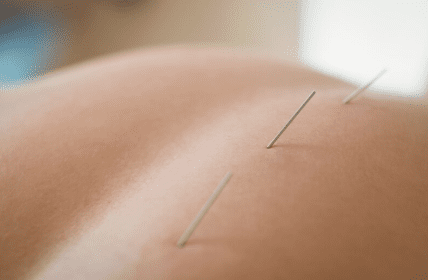
5 Natural Ways to Enhance Your Acupuncture Results
Acupuncture is powerful—but did you know your daily habits can amplify its effects?
Many patients are surprised to learn that what they do after a session can greatly influence how well their body responds to treatment. Acupuncture works by stimulating your body’s natural healing mechanisms, improving the flow of Qi (vital energy), and restoring internal balance. But to truly maximize these benefits, you need to support that healing outside the treatment room.
At Middle Path Acupuncture, we believe healing doesn’t stop when the needles are removed. From the food you eat to the way you rest, small everyday choices can strengthen the effects of acupuncture and help your body heal faster and more completely.
In this guide, we will explore five natural ways to make your acupuncture results more effective—each based on Traditional Chinese Medicine (TCM) principles and simple enough to begin today.
How Simple Lifestyle Habits Maximize Your Acupuncture Benefits?
Stay Hydrated
Why it matters:
Water is essential for circulation, detoxification, and regulating body temperature—all of which are vital after an acupuncture session. In TCM, proper hydration supports the movement of Qi and nourishes your body’s Yin (cooling, restorative energy).
Post-treatment hydration helps your body:
- Eliminate metabolic waste released during acupuncture
- Support the lymphatic system
- Maintain smooth Qi and blood flow
Tip:
Drink plenty of warm fluids after your session. Warm water is gentler on the digestive system and more aligned with TCM principles than cold beverages, which are thought to constrict energy flow.
Some great post-acupuncture drinks include:
- Ginger tea: Warms the meridians and soothes digestion
- Chrysanthemum tea: Calms the liver and clears internal heat
- Lemon water: A gentle detoxifier and alkalizer
Aim for at least 8–10 cups of fluid throughout the day—and skip the iced drinks for at least 24 hours after your treatment.
Prioritize Rest & Sleep
Why it matters:
Acupuncture stimulates the parasympathetic nervous system, which puts your body in “rest-and-digest” mode. This is when deep healing occurs. Overexerting yourself post-treatment can counteract the benefits by sending your system back into stress mode.
In TCM:
Sleep is when Qi returns to the organs to replenish energy and promote repair. Insufficient rest can prevent your body from integrating the healing initiated during your session.
Tip:
Make space to rest after acupuncture. If possible, avoid intense workouts, heavy socializing, or over-scheduling your day. Instead:
- Take a gentle walk
- Read or listen to soothing music
- Get to bed early and aim for 7–9 hours of sleep
Your body does its best work while you rest. Don’t shortchange it.
Eat Nourishing, Anti-Inflammatory Foods
Why it matters:
Food is medicine—especially after acupuncture. Eating nutrient-dense meals helps reduce inflammation and keeps your digestive system strong. In TCM, the Spleen and Stomach are key to generating Qi and blood. Cold, raw, or processed foods burden this system and slow healing.
Foods that support your acupuncture results include:
- Cooked vegetables like carrots, squash, bok choy
- Warming spices like cinnamon, ginger, turmeric
- Whole grains like brown rice, millet, and quinoa
- Bone broth or miso soup to strengthen Qi and nourish the body
Tip:
Avoid sugary snacks, dairy-heavy meals, excessive caffeine, or fried/greasy foods, especially in the 24–48 hours after treatment. Stick to warm, cooked, and lightly spiced meals to support digestion and help your body make the most of your session.
Practice Gentle Movement
Why it matters:
While rest is important after treatment, movement keeps Qi flowing. Gentle activities help circulate energy through your meridians and support emotional balance and physical flexibility. Think of movement as another form of medicine.
In TCM terms:
Movement prevents stagnation. When Qi becomes stuck, it can lead to pain, mood swings, fatigue, or digestive issues.
Tips:
The day after your treatment, engage in low-impact movement:
- Tai Chi or Qi Gong: These traditional practices are designed to move Qi harmoniously.
- Restorative yoga: Encourages stretching and relaxation without strain.
- Nature walks: Gentle outdoor walks can boost mental clarity and reduce stress.
Try Tai Chi at Golden Gate Park in San Francisco—it’s a relaxing way to move your energy and connect with your surroundings.
Reduce Stress with Mindfulness
Why it matters:
Stress is a major disruptor of Qi flow. Acupuncture reduces stress hormones like cortisol, but consistent daily stress can quickly undo those effects. Mindfulness helps reinforce the mental and emotional calm created by your sessionIn TCM:
Emotional imbalance—especially overthinking, worry, and anger—can block Qi in the Liver and Heart meridians. This can lead to insomnia, headaches, fatigue, or anxiety.
